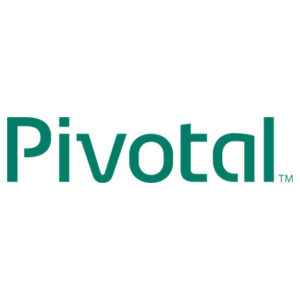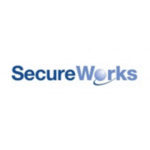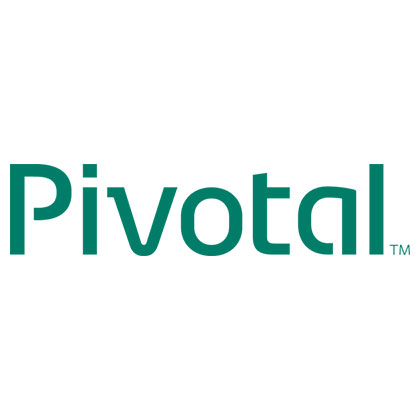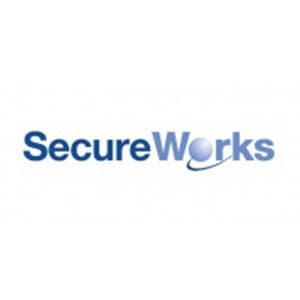Category: Technology Stocks
Pivotal Software: Helping Developers Code in the Cloud
 Founded in 2013, and based in San Francisco, Pivotal Software (NYSE: PVTL) provides a cloud-based software development platform and services for software development. Consensus estimates call for revenue of $622 million for the fiscal year ending January 31, 2019, along with a loss of $0.45, followed by revenue of $771 million in fiscal year 2020 the following fiscal year, along with a loss of $0.44.
Founded in 2013, and based in San Francisco, Pivotal Software (NYSE: PVTL) provides a cloud-based software development platform and services for software development. Consensus estimates call for revenue of $622 million for the fiscal year ending January 31, 2019, along with a loss of $0.45, followed by revenue of $771 million in fiscal year 2020 the following fiscal year, along with a loss of $0.44.
Pivotal debuted on the NYSE on April 22, 2018, in a 43.6 million Class A common stock offering priced at $15 per share, which ultimately included 5.5 million shares sold pursuant to the exercise in full of the underwriters’ option to purchase additional shares. In total, Pivotal offered roughly 39 million shares, and General Electric, the selling stockholder, offered 3.9 million shares, which represented about 20 percent of its position in Pivotal. In the offering, Pivotal netted roughly $525 million. The IPO was led by a vast array of 15 investment banks, including Goldman Sachs, Morgan Stanley, Citigroup, BofA Merrill Lynch Barclays, Credit Suisse, RBC Capital Markets, UBS, William Blair, and others. Post-offering, there are an estimated 65 million Class A shares and 176 million Class B shares outstanding, though we await further clarification, once the company reports results for its quarter ended April 30th. At a recent share price of $20, Pivotal’s market cap exceeds $4.8 billion.
Pivotal Software was formed in April of 2013, when DellEMC and VMWare (which was majority owned by EMC) spun off developer teams, assets, and technology to create the company. Since then, the company has raised $1.7 billion in funding from Microsoft, Ford Motor, and General Electric. The core of Pivotal Software is the cleverly-named Pivotal Cloud Foundry (PCF), a software development platform which is utilized to write and manage cloud native applications, as well as modernize legacy apps written for other computing platforms. PCF integrates both open source and proprietary software. The other piece of Pivotal Software is comprised of strategic services, which the company refers to as Pivotal Labs.
Within large industrial, technology and services companies there is still quite a lot of custom software development taking place, despite the rise of packaged applications for the cloud. PCF can be utilized to manage and develop applications across the key cloud and open source environments, including Amazon AWS, Microsoft Azure, Google Cloud Platfrom, VMWare, and OpenStack. In addition, companies have invested millions of dollars in proprietary applications, some of which need to be updated for cloud environments. Pivotal counts more than 300 companies spread across the automotive, transportation, industrial and services industries, including financial services, healthcare, insurance, technology, media, and government sectors. Pivotal cites as its goal the improvement of ratio of developers to operators, and an increase in the amount of time writing code and making “meaningful” updates to software applications, which it claims can be improved by 50 percent utilizing PCF.
Pivotal recorded revenue of $509 million in its fiscal year ended January 31, 2018, an increase of 22 percent over the prior year. Subscription revenue, which carries an 88 percent gross margin, contributed 51 percent of revenue and grew by 73 percent over the prior year, while services, which carries a gross margin of only 22 percent contributed the remaining 49 percent. Despite this relatively favorable gross margin structure, which yielded a weighted average total of 56 percent in its last fiscal year, Pivotal recorded a rather astounding operating loss of $168 million in FY’18. Though this was not as egregious as the $227 million operating loss of the prior fiscal year, it still raises a major red flag with respect to the company’s glaring lack of profitability, given its critical mass of more than $500 million in revenue. Pivotal has a solid post-IPO balance sheet thanks to its mammoth IPO, with nearly $600 million in cash, and long term debt of just of $20 million for a net cash position of $580 million, which is likely to prove to be temporary, given the company’s operating losses.
SecureWorks: Security Hybrid
 SecureWorks (NASDAQ: SCWX), based in Atlanta, Georgia, is the newest addition to our Battle Road IPO Review Software coverage. The company provides managed IT security services and subscription software to over 4,300 companies in 59 countries. For the fiscal year ending January 31, 2017, Consensus estimates call for revenue of $425 million (up 25 percent from the prior year) and a loss per share of $0.32. For FY’18, revenues are expected to rise by 20 percent to $509 million, while its loss is expected to narrow to $0.10 per share.
SecureWorks (NASDAQ: SCWX), based in Atlanta, Georgia, is the newest addition to our Battle Road IPO Review Software coverage. The company provides managed IT security services and subscription software to over 4,300 companies in 59 countries. For the fiscal year ending January 31, 2017, Consensus estimates call for revenue of $425 million (up 25 percent from the prior year) and a loss per share of $0.32. For FY’18, revenues are expected to rise by 20 percent to $509 million, while its loss is expected to narrow to $0.10 per share.
SecureWorks priced its 8 million Class A share IPO at $14 per share on the NASDAQ on April 21, 2016, below an expected range of $15.50 to $17.50 per share, thus becoming the first technology IPO of 2016, ending a significant drought. The company is a spin out from Denali Holdings (formerly Dell). Denali continues to own 70 million Class B shares, along with 98 percent of the voting rights. The IPO, which raised over $100 million for the company was led by Bank of America Merrill Lynch, Morgan Stanley, Goldman Sachs, J.P. Morgan, and 13 other securities underwriters-investment banks. At a recent share price of $14, SCWX’s market cap is roughly $1.3 billion.
Founded in 1999, and acquired by Dell in 2011, SecureWorks is something of a hybrid between a software company, and an IT services company. SecureWorks offers a broad range of managed security services and software solutions designed to protect companies against security threats, with an emphasis on early warning and detection of suspicious activity stemming from security breaches, the introduction of malware, and threats from hackers. The company’s more than 4,300 customers are represented across a wide range of industries, including banks, telecom service provers, healthcare services and product companies, and retail chains. Bank of America was its largest customer last year, accounting for nine percent of revenue.
In the most recent quarter, SecureWorks continued to improve its gross margin, which reached 50 percent from 43 percent last year, assisted by the growing percentage of revenues driven by subscriptions, which totaled more than 80 percent last year. At the same time, the company narrowed its operating loss from $26 million in the prior year, to $19 million. Post IPO SecureWorks has a strong balance sheet with $124 million in cash and no debt. SCWX trades in the second half of our Battle Road IPO Review Software sector coverage.


